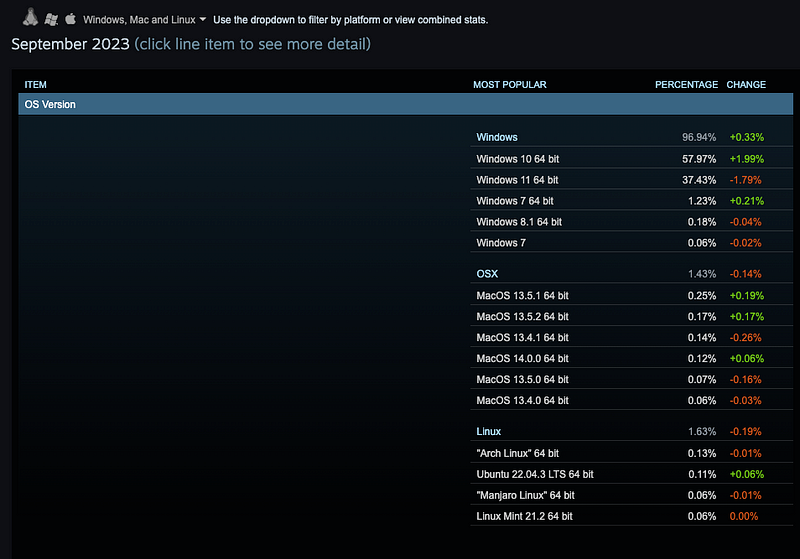Can Gaming on Mac Finally Become a Reality?
Written on
Introduction to Mac Gaming
The relationship between Mac computers and gaming is often viewed skeptically. Historically, Apple has not emphasized Macs as gaming devices, focusing instead on their capabilities for productivity. This focus has fostered a perception among gamers that Macs are not suitable for gaming. Many Mac users do not typically engage in gaming, leading to the stereotype of Mac users as "non-gamers."
Questions frequently arise in discussions: "Is gaming possible on a Mac?" The straightforward answer is that gaming options on Macs are rather constrained. Users may need additional software to run certain games, and if a game lacks official support for macOS, playing it can be a daunting task, especially for those who are less tech-savvy.
However, the landscape is beginning to shift...
Ray Tracing Technology and Its Implications
With the launch of the iPhone 15 Pro and Pro Max, which include the A17 Pro chip capable of ray tracing graphics, we see a significant advancement. Ray tracing enhances realism in graphics by simulating how light interacts with objects. While some may argue that such technology is excessive for a mobile device, it could represent the first step towards broader integration in Apple's desktop chips, like the upcoming M-series.
This suggests that future Apple M3 chips could also support ray tracing, indicating Apple's commitment to enhancing gaming experiences across its platforms. This shift may encourage game developers to consider bringing their titles to Apple's ecosystem.
Challenges in Porting Games to macOS
Transferring games to different operating systems is a complex process fraught with challenges. While games built with the Unity Engine often support macOS natively, those created with other engines may not. This can be likened to translating between two languages—game developers face significant hurdles when adapting their titles for macOS due to differing programming interfaces.
Moreover, the development process itself requires considerable time and resources, encompassing testing, bug fixes, and ongoing maintenance. Consequently, many companies outsource this porting work, especially for platforms like the Nintendo Switch or macOS.
Despite Apple's potential financial support for game development, the issue remains: the sustainability of the macOS gaming community.
Market Viability and Developer Reluctance
The statistics from the Steam Survey in September 2023 highlight a stark contrast in gaming demographics:

- Windows: 96.94%
- macOS: 1.43%
- Linux: 1.63%
With such a small percentage of gamers using macOS, it's understandable why developers might hesitate to invest the resources required to port their games.
A Recent Development in the Gaming Community
In October 2023, Valve announced the discontinuation of macOS support for Counter Strike 2, despite its predecessor, CS:GO, previously being available. Valve cited the minuscule player base on macOS as the primary reason, indicating that the community's size does not justify the investment required for development.
The Ongoing Dilemma: A Cycle of Inaction
This situation illustrates a classic "chicken and egg" dilemma involving Apple, game developers, and gamers. Developers are reluctant to allocate resources for macOS ports due to the limited gaming market, while potential users lack incentives to purchase Macs for gaming due to their accessibility and cost issues.
As a result, Apple may perceive the gaming market as not worth pursuing, reinforcing the cycle of disengagement.
Breaking the Cycle
To disrupt this stagnation, one of the stakeholders must initiate change. Apple appears to be taking action by investing in both hardware improvements and incentivizing game developers. By demonstrating a commitment to their gaming technology, they may instill confidence in both developers and users regarding gaming on Mac.
Nevertheless, building a robust gaming community among macOS users will take time.
The Reality of Market Competition
Given that most current Mac users do not prioritize gaming, support for gaming on macOS is often viewed as an added bonus rather than a necessity. To truly attract gamers, Apple must offer compelling advantages over existing alternatives. If similar-priced options deliver better performance, users are likely to stick with what they know.
Ultimately, substantial improvements in gaming experience and product value are necessary for users to consider switching to the Apple ecosystem.
Conclusion: The Future of Mac Gaming
The challenges facing macOS gaming are indeed formidable. Commitment and patience are essential as Apple endeavors to bridge the divide in both hardware and software. While there is optimism about closing the gap between Windows and macOS gaming, the question remains whether a significant turning point will arrive. Until then, gaining widespread recognition of Macs as viable gaming platforms will be an ongoing struggle.
In this video titled I tried GAMING on Mac in 2023..., the creator explores the current state of gaming on Mac, assessing whether it's a feasible option for gamers.
In the video Gaming on Mac in 2024, the focus shifts to future possibilities and advancements for gaming on Mac systems, shedding light on what lies ahead.